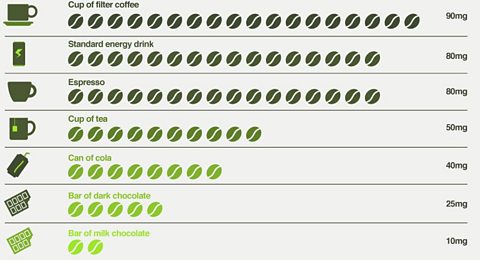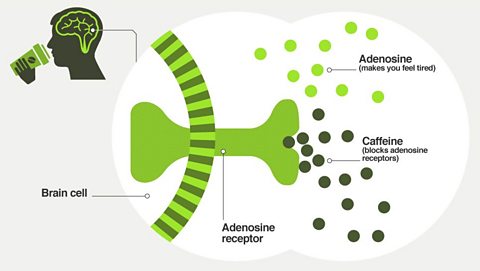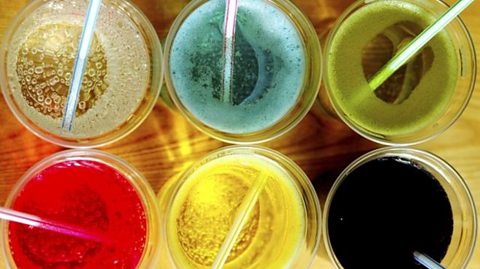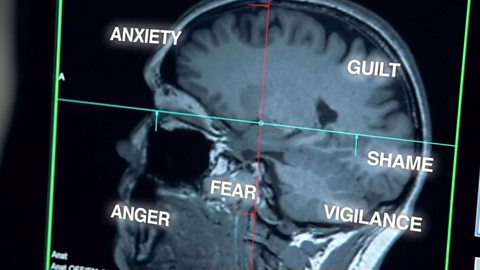The world's favourite drug
Caffeine is the most commonly used drug in the world with over two billion cups of caffeinated drinks consumed every day.
In Europe, caffeine is mainly supplied by coffee.
About 15 minutes after putting down your cup, you'll begin to feel a caffeine hit that can last hours.
It's a neural jolt some of us rely on to simply think straight in the mornings. And some rely on caffeine's effects to feel mentally agile throughout the day. But how does it work? And does caffeine, in all its forms, really deliver?
How do you feed your habit?
It's a common misconception that caffeine only comes from coffee. In fact it's found in many products. For most people, consuming up to 400mg each day poses no problems. Pregnant women are recommended to drink less than 200mg.

Stopping the sleepy feeling
Caffeine works by blocking the action of adenosine β a molecule that tells our brain to feel tired.


Faster but not smarter
Scientists have measured the difference caffeine makes to mental performance by testing regular users and non-users. Here's what they discovered from their study:
Frequent caffeine users seem more alert, awake and have better attention after they consumed caffeine.
However, regardless of caffeine consumption, non-users performed just as well in tests as the frequent users.
When non-users consumed caffeine, they felt more awake but jittery. Unfortunately their attention and mental alertness did not improve.
Caffeine improved motor skills during 'finger-tapping speed' tests in both frequent caffeine users and non-users.
Caffeine conclusions
While caffeine appears to improve some physical aspects of performance, it does little to enhance the mental abilities of regular users, who quickly develop a tolerance to caffeineβs effects. Non-users meanwhile might feel more alert after a shot of caffeine but they donβt experience any improvement when carrying out mental performance tests either.

Learn more about this topic:
Why is storytelling important to children? document
Former CBeebies presenter Alex Winters went on a mission to find out just whatβs so important about stories.

Take the test: Do I care too much what people think of me? document
Do you worry too much what other people think of you? Are you constantly seeking affirmation and approval? Do you put others first at the expense of yourself?

How do I stop feeling like a fraud? document
A look at the condition called "imposter phenomenon" and how teachers are one of the groups that suffer with it.
